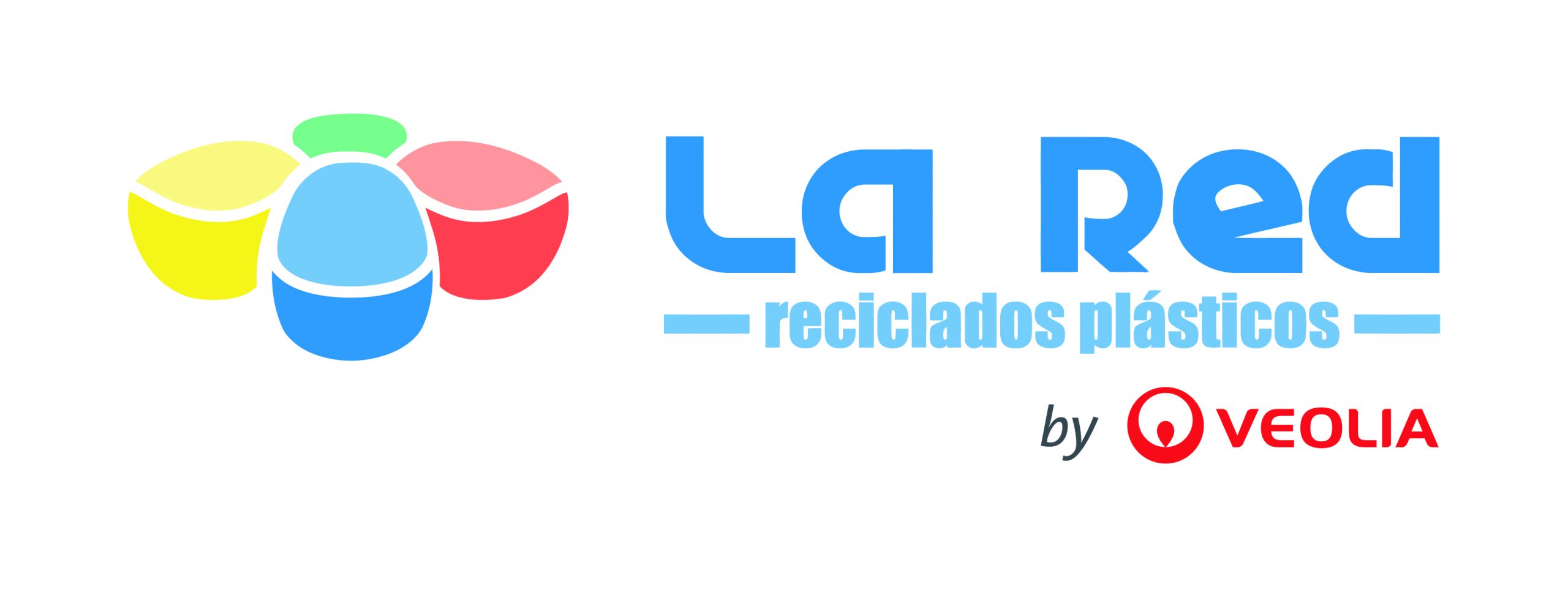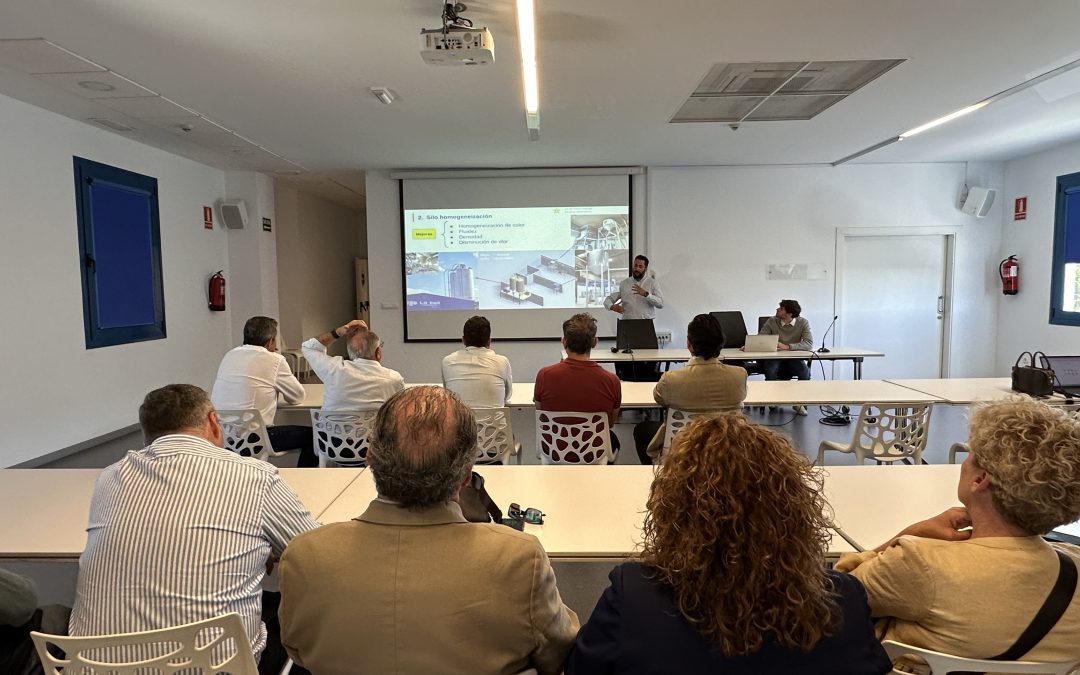
by webmasterMT | May 27, 2025 | Circular Economy, Environment, Innovation, recycled material, Recycling, Sustainability
Innovation and Transparency in the LDPE Recycling Industry
At Reciclados La Red by Veolia, innovation and transparency go hand in hand. We recently held an Open Day focused on LDPE quality improvements, giving clients and partners the opportunity to gain detailed insight into our advancements in plastic recycling.
Looking for examples of industrial sustainability? This event highlighted the potential of new technologies applied to LDPE recycling.
Why Hold an Open Day in LDPE Recycling?
Efficient plastic recycling is a global priority. Organizing these open days allows our clients to see, first-hand, how investments and technical upgrades transform production processes.
Importance for Clients and the Industrial Sector
Trust is built through transparency. We invited our clients to discover step-by-step how we manage LDPE and how our recent investments have improved product quality.
Boosting the Circular Economy in Spain
These initiatives reinforce our commitment to the circular economy and to sustainability in Spain’s plastic recycling industry.
LDPE Quality Improvements: The Key to Advanced Recycling
During our presentation, we detailed the advances incorporated into our LDPE recycling processes.
New Post-Industrial LDPE Sorting Plant
- Precise separation of contaminants and colored film.
- Dramatic reduction in black spots.
- Greater cleanliness and product uniformity.
Homogenizer Silo and Parameter Controls
- Total homogenization of color, flow, and density.
- Odor reduction.
- Transition from manual to automatic operation by June 2025.
Innovative Washing Water Separation System
- Dual-circuit: clean and waste water.
- Improved filtering efficiency and reduced environmental footprint.
- New dedicated water treatment plant operational by the end of May.
Tour of Our Facilities: Total Transparency in LDPE Recycling
Participants enjoyed an immersive experience at our La Red Hacienda Dolores, La Red Central, and Ecores plants.
La Red Hacienda Dolores: Innovation in Action
Here, we offered a practical demonstration of technical advances in LDPE sorting and processing.
La Red Central and Ecores: Process Optimization
Here, we showcased improvements in operational efficiency and technological integration to deliver consistently high-quality recycled products.
Results of Quality Improvements in LDPE Recycling
The benefits of these investments are already being seen by our clients.
Benefits for Clients: Homogeneous and Reliable Products
- Fewer incidents and defects.
- Consistent quality from batch to batch.
- Reduction in contamination and cross-batch issues.
Reduced Defects and Greater Traceability
- Implementation of advanced traceability systems.
- Use of technology aligned with European standards.
Our Commitment: A Sustainable Future and Ongoing Improvements
We are already working on new projects to further enhance the efficiency, sustainability, and quality of LDPE recycling. Our 2025 vision includes digitalization of controls, reduced energy consumption, and new sorting lines.
Photo Gallery: The Day in Images
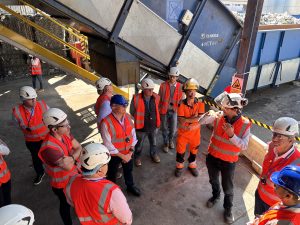
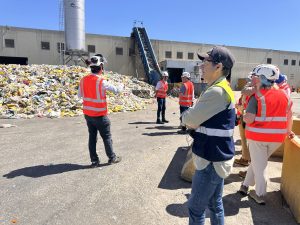
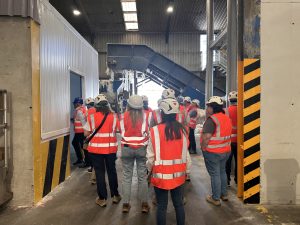
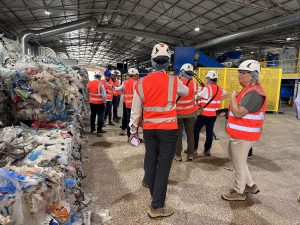
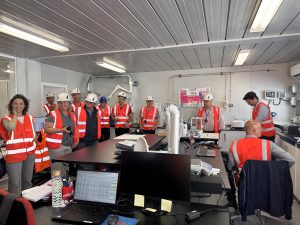
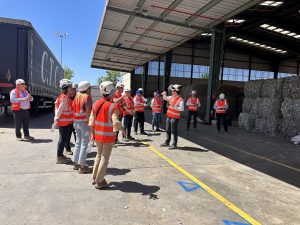
Conclusion: Transparency in Plastic Recycling Drives Trust
Showcasing our improvements and opening our doors to clients strengthens trust, generates new opportunities, and helps build a robust circular economy in Spain.
To learn more, contact us or visit our product and sustainability pages.
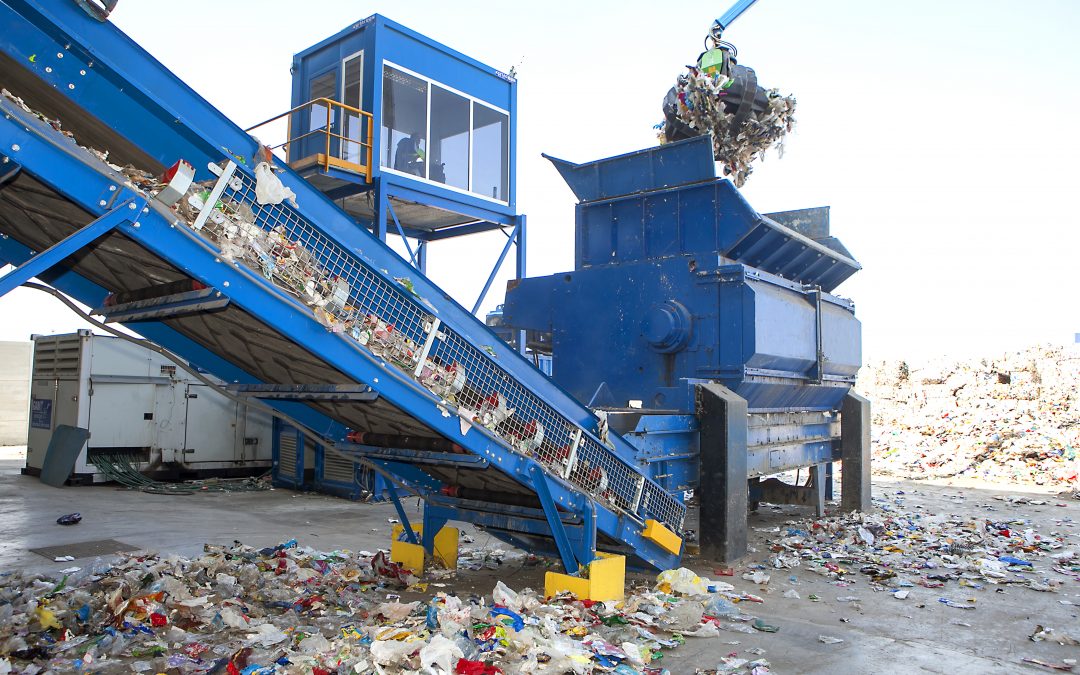
by webmasterMT | May 19, 2025 | Circular Economy, Environment, Innovation, recycled material, Recycling, Sustainability
May 17 is a marked date on the environmental calendar: World Recycling Day. This day seeks to reflect on our consumption habits and waste management, especially plastic, one of the most prevalent and controversial materials of our time.
From Recycled La Red by Veolia, we want to show you why plastic recycling is essential to achieve an efficient and responsible circular economy. Why do we celebrate World Recycling Day?
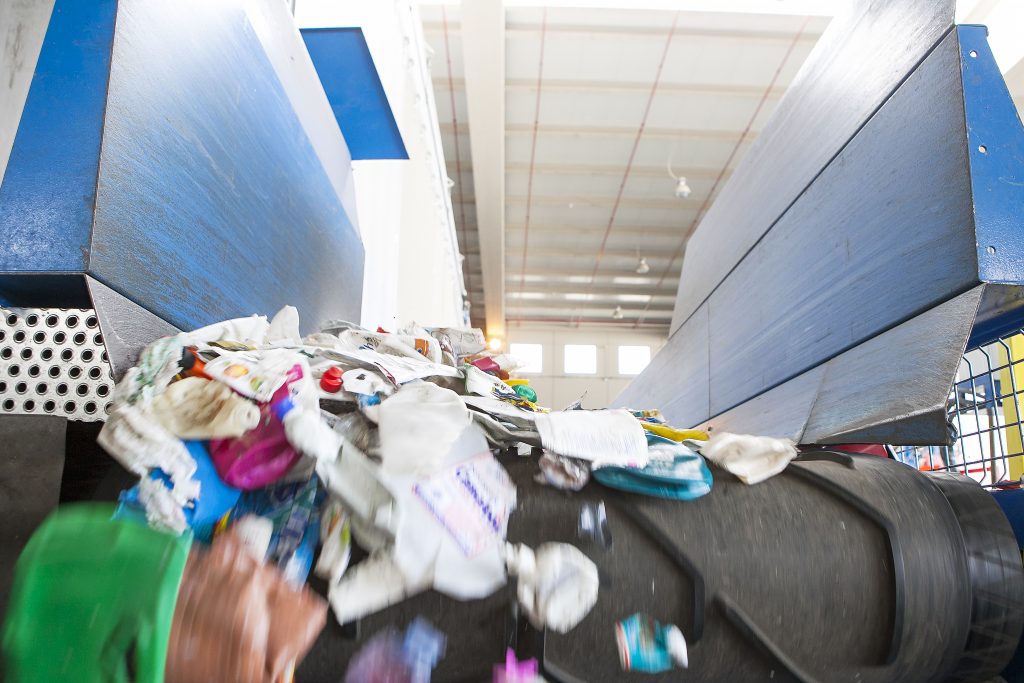
Origin and objectives of World Recycling Day
This event, promoted by UNESCO, seeks to raise awareness of the importance of reusing and recycling materials to reduce pressure on natural resources.
Global importance of plastic recycling
Recycling directly contributes to waste and CO2 emission reduction. Recycled plastic prevents tons of waste from ending up in landfills and oceans every year.
The impact of plastic recycling on the circular economy
Environmental advantages of recycled plastic
The use of recycled plastic in products and packaging reduces oil extraction, saves energy and significantly decreases the carbon footprint.
Resource saving and waste reduction
Each team and machine at Recycled La Red by Veolia aims to transform waste into raw material, which promotes circularity and protects ecosystems.
Data from PlasticEurope shows that in Europe, more and more companies are taking advantage of recycled plastic, surpassing 5 million tons reused annually (source: https://plasticseurope.org).
Recycled La Red by Veolia: Our work in plastic recycling
Recycling process at our plant in Spain
At our facilities, we collect, classify and treat plastic waste according to the strictest European standards. We convert post-consumer and post-industrial waste into high-quality recycled plastic, ready to be transformed into new products.
Benefits of recycled plastic for businesses and consumers
Recycled plastic is a valid and sustainable alternative, ideal for sectors such as packaging, automotive or construction. It provides clear economic and environmental benefits.
How you can contribute to plastic recycling
Practical tips to improve recycling at home and in the office
- Separate the types of plastics correctly in the yellow containers.
- Reduce the consumption of single-use plastics.
- Find out about the clean points in your city.
- The importance of separation and selective collection
- Correct separation facilitates recycling, increasing the quality of the recovered materials and avoiding rejections. Learn to read labels well and follow local informative campaigns.

The future of recycled plastic in Spain and the world
Innovations and trends in plastic recycling
The implementation of new technologies or the new advanced recycled resins progress in efficiency and purity, opening new applications for recycled plastic.
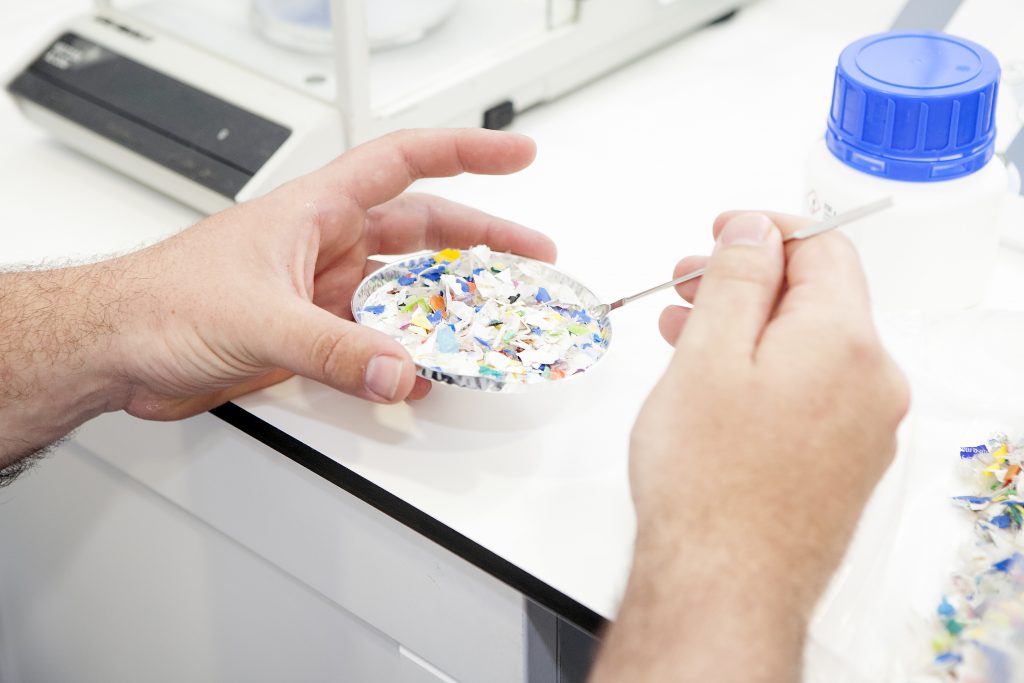
Institutional support and new European regulations
The European Union promotes regulatory frameworks such as the European Plastic Strategy, demanding higher recycling rates and the design of more sustainable packaging (source: https://europa.eu).
In Spain, the National Integrated Waste Plan strengthens the recycling chain from collection to the eco-design of new products.
Do you want to boost plastic recycling? Visit our website and find out how we can help you take the next step towards sustainability.
Plastic recycling is a real opportunity to transform waste into resources. Our environmental commitment is realized day by day, driving the change towards a cleaner and more prosperous planet for everyone.

by webmasterMT | Feb 12, 2025 | Circular Economy, Recycling
Innovation in Recycled Plastics: Driving the Circular Economy
The VII Edition of Plastics and Circular Economy, held in Valencia, brought together experts and industry professionals to discuss the future of plastics. This event, titled “Beyond Recycling,” highlighted the importance of innovation in recycled plastics as a driver of the circular economy.
Innovation in Ecodesign and Digitalization
European Ecodesign Regulation
The new European Sustainable Products Regulation was a central topic. This regulation not only focuses on energy efficiency but also sets requirements for ecodesign. Timoteo de la Fuente, from the Ministry of Industry and Tourism, emphasized the importance of these standards to improve product sustainability.
Digital Passport for Plastic Products
An innovative digital tool was presented that will collect data from the entire value chain of each product. This digital passport will allow consumers to make more sustainable purchasing decisions, with full implementation expected by 2030.
Reuse and Refill Strategies
Innovation in Reusable Packaging
The need to develop reusable packaging was another highlighted topic. Companies like Babaria and Sintac Recycling presented the EcosmartPack project, offering smart and reusable packaging for sectors such as food and cosmetics.
Waste Management Models
The Collective Extended Producer Responsibility System (SCRAP) was discussed as a strategy to incentivize recycling. Starting in 2025, producers will be responsible for the first market placement of their products, promoting design for reuse.
Circularity and Decarbonization
Reducing the Carbon Footprint
The circular economy offers opportunities to reduce CO₂ emissions. Experts like Antonio García, from València European Green Capital, shared initiatives to integrate recycled materials into new products, thus reducing the environmental footprint.
Innovative Industrial Applications
Innovative solutions were presented, such as using recycled material from wind turbine blades for 3D printing. These initiatives aim to integrate circularity into demanding sectors like the automotive industry.
New Sustainable Business Models
Turning Challenges into Opportunities
The circular economy presents an opportunity to create sustainable business models. Companies like Novamont and Repsol shared success stories in integrating circularity throughout the entire value chain.
Demonstrations and Poster Sessions
Tangible Innovation
During the event, real demonstrators of innovations in the circular economy were exhibited. From pencil holders made from fishing nets to olive oil containers made from olive waste, these demonstrations highlighted the potential of the circular economy.
The VII Edition of Plastics and Circular Economy in Valencia was a platform to exchange knowledge and present disruptive innovations. The event highlighted the importance of digitalization, reuse, and the integration of new business models.
Join us at Reciclados La Red by Veolia and be part of the change towards a more sustainable future. Discover how you can contribute to the circular economy by using our recycled plastic.
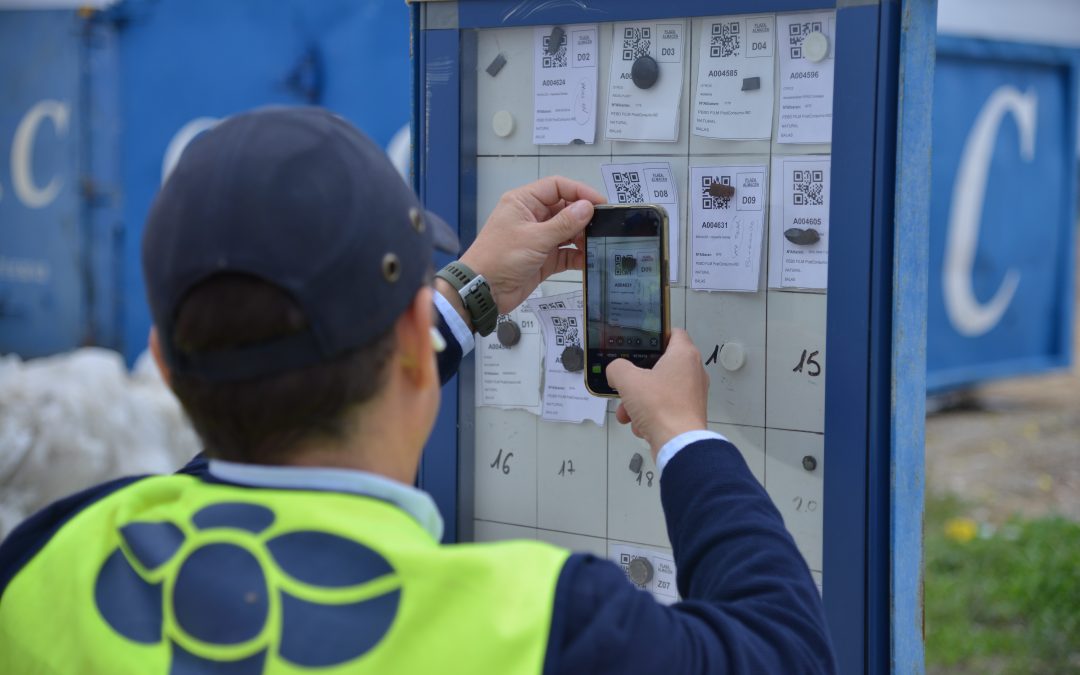
by webmasterMT | Jul 9, 2024 | Recycling
In an increasingly demanding market, provenance and traceability have become a fundamental value, especially in the recycled plastic sector. Where does the material really come from? Has it been processed responsibly? Can we be sure of its quality and sustainability?
UNE-EN 15343 Certification: Quality and Origin Guarantee
One of our greatest competitive advantages is the incorporation of the UNE-EN 15343 regulation, which certifies the traceability of our recycled plastics. This European standard establishes the criteria that must be followed to ensure that the origin and information of the recycled plastics are completely traceable. This involves meticulous documentation from the collection of the material, through its processing, to the delivery of the final product.
Why is traceability and transparency important?
- Consumer trust: In a market increasingly aware of environmental impact, consumers and companies demand clear certifications that ensure the products they purchase are truly sustainable.
- Competitive improvement: Having recycled plastic certified according to the UNE-EN 15343 standard distinguishes us in a saturated market, offering an additional guarantee that many competitors cannot provide.
- Market opportunities: Some industries are beginning to require certified recycled materials to comply with increasingly strict sustainability regulations.
Digital Transformation: the key to transparency.
To comply with and guarantee the traceability of our materials, we have implemented advanced digital technologies throughout the recycling process. We use specific software systems that record and monitor each step of the plastic’s journey, from its entry into our facilities to its exit as a certified recycled product. This digital integration not only increases the efficiency of our process but also provides our customers with total transparency about the origin and journey of the materials they acquire.
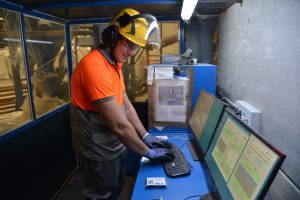
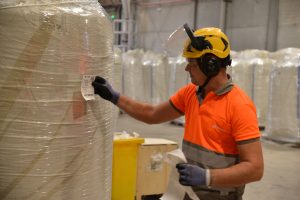
Continuous Commitment
At Reciclados La Red by Veolia, we are continuously exploring new technologies and methods to improve not only the traceability of our materials but also their quality and the efficiency of our processes. Our goal is not only to meet current demands but to anticipate the future demands of a constantly evolving market.
We appreciate the trust that our customers place in us and reaffirm our commitment to maintaining transparency at every step of our recycling process. By raising the standards of our industry, together we can make a significant difference for a more sustainable future.
For more information about our processes and products, do not hesitate to contact us. We are here to help you transition to a greener and more sustainable business model.
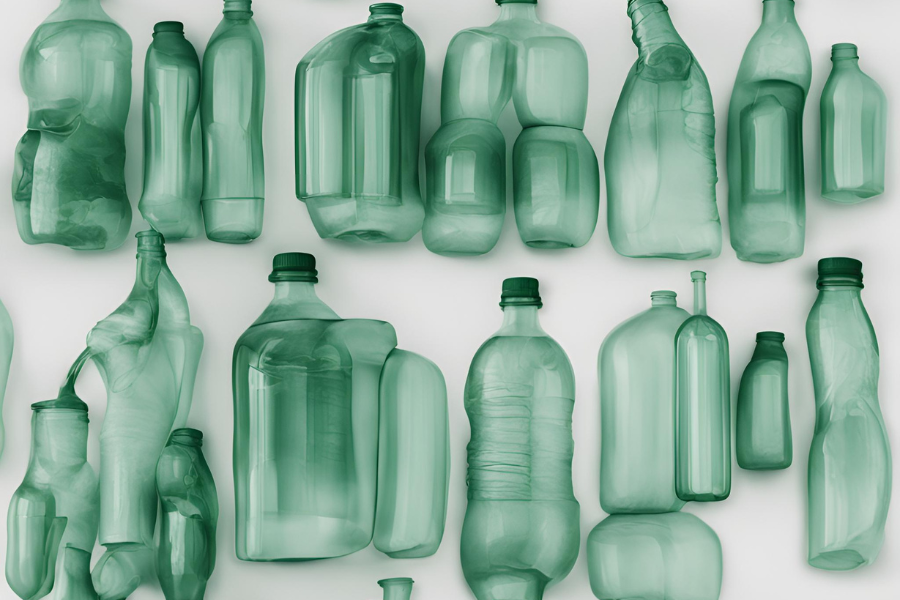
by webmasterMT | Jun 13, 2024 | Recycling
In a world where sustainability has become a global priority, eco-design emerges as a key solution to address the environmental challenges associated with plastic use. At Reciclados La Red by Veolia, we are dedicated not only to plastic recycling, but also to promoting practices that reduce waste generation from its source. Eco-design is one of these fundamental practices.
What is eco-design?
Eco-design is a strategy that integrates environmental criteria into product design, in this case, plastic packaging. It focuses on reducing environmental impact throughout the product life cycle, from material selection to final disposal. The idea is to create packages that are easier to reuse and recycle, thus contributing to waste reduction and more efficient use of resources.
Advantages of eco-design for plastic recycling
- Facilitates recycling: By designing packages with homogeneous or easily separable materials, the recycling process is simplified. This improves the quality of recycled material and increases its market value.
- Waste reduction: By minimizing the use of materials and opting for those that are recyclable, the amount of waste reaching landfills is reduced.
- Resource saving: Eco-design promotes the use of recycled materials and reduces the dependence on virgin resources. This not only conserves natural resources, but also reduces the carbon footprint associated with the production of new plastics.
- Improves brand image: Companies that adopt eco-design practices not only contribute to the environment but also improve their reputation among increasingly sustainability-conscious consumers.
Principles of eco-design in plastic packaging
- Material selection: Use plastics that are recyclable and, where possible, come from recycled materials.
- Material reduction: Design packages that use the least amount of plastic without compromising their functionality and safety.
- Modular design: Create packages that can be easily disassembled to facilitate material separation.
- Reuse: Promote the design of packages that can be reused before being recycled.
Success stories
There are already numerous examples of companies that have adopted eco-design with positive results. From water bottles that use less plastic to food containers that are 100% recyclable, the plastic industry is seeing how these innovations not only benefit the environment, but also companies and consumers.
In conclusion, eco-design is not just a trend, but a necessity in creating sustainable plastic packaging. At Reciclados La Red by Veolia, we are committed to continuing in this direction, offering solutions that contribute to a cleaner and more responsible future. We invite all companies and consumers to join this effort for a world with less waste and more rational use of resources.
Commitment to eco-design is a crucial step towards sustainability. Let’s continue to innovate and work together to create a positive impact on our planet.
Together, we can make a difference!







